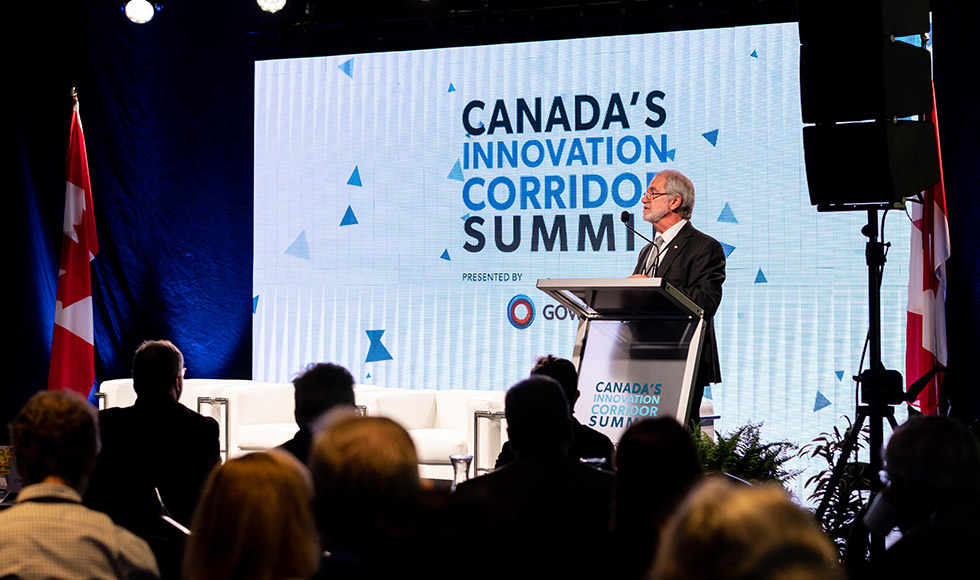Collaboration critical for future of manufacturing industry

The Advanced Manufacturing Supercluster is expected to generate 13,500 jobs and inject $13.5B into the southern Ontario economy.
That’s just one of the ways McMaster’s collaborative work in advanced manufacturing is impacting Canadians, President Patrick Deane told Canada’s Innovation Corridor Summit Tuesday.
“The Advanced Manufacturing Supercluster and industry-affiliated groups all play a vital role in the growth of Advanced Manufacturing in this region in order to improve productivity or bring a product to market.” | #CICS2018 pic.twitter.com/Md9kytH0NF
— McMaster University (@McMasterU) June 26, 2018
The summit is an initiative of Canada’s Innovation Corridor Business Council, which represents more than 21,000 businesses.
McMaster played a lead role in the Supercluster bid, which led to the formation of Next Generation Manufacturing Canada. It currently operates out of the McMaster Innovation Park.
Superclusters are dense areas of business activity where many of the middle-class jobs of today and tomorrow are created. They attract large and small companies that collaborate with universities, colleges and not-for-profit organizations to turn ideas into solutions that can be brought to market.
Deane also told delegates about McMaster’s highly successful partnership with ArcelorMittal Dofasco, which sponsors a research chair in advanced manufacturing policy – held by Greig Mordue – at the University.
Great to see MPP-Elect for Burlington @JaneMcKennaPC here at Canada's Innovation Corridor Summit | #CICS2018 #BrighterWorld pic.twitter.com/9n6R7NGn8V
— McMaster University (@McMasterU) June 26, 2018
“The policy work being developed by Greig is critical in order to prepare both industry and government in order to react to the changing face of manufacturing,” he said.
McMaster engages in a wide range of industry collaborations, including working on Developing the materials needed to treat prostate cancer, testing the integrity of commercial jet engine blades and taking high resolution 3D images of minuscule biomaterials.
